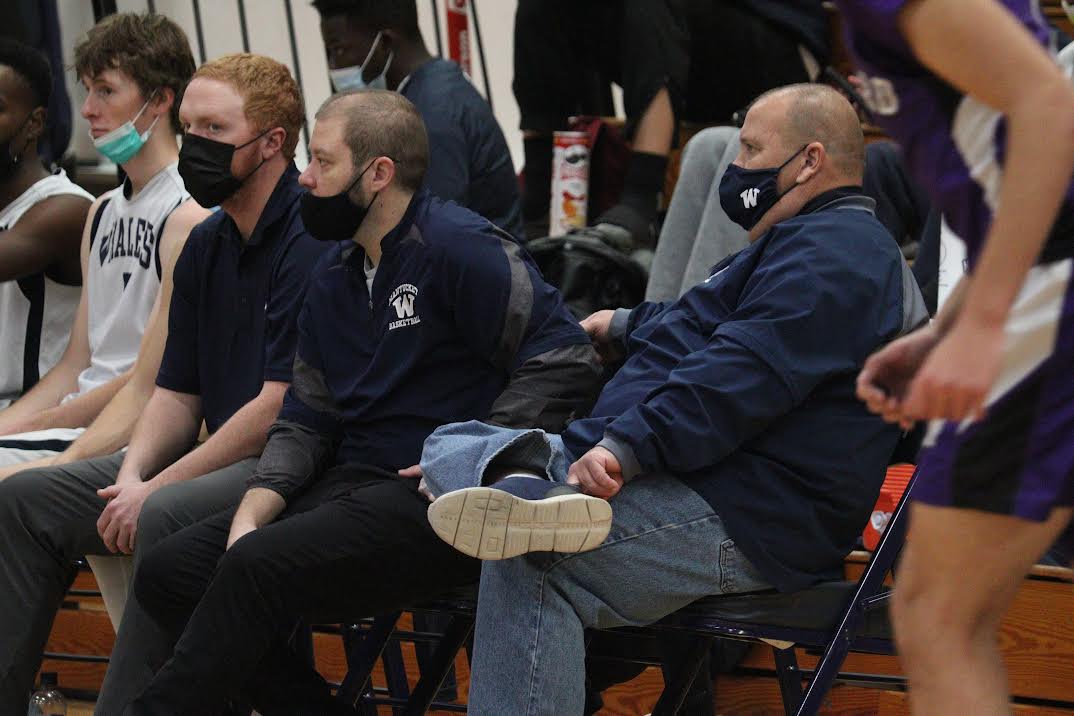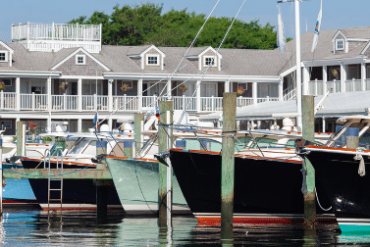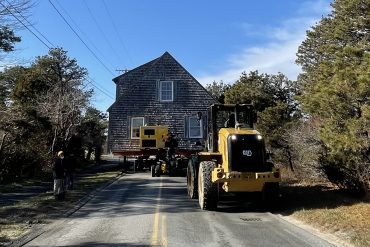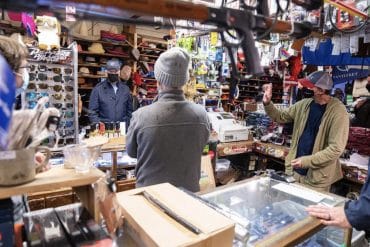Mike Ferreira considers himself to have a great life. He owns a home in Pembroke, has owned an auto detailing business in Duxbury for 10 years, plays basketball every day, and is in the midst of his second season as an assistant coach for the boys varsity basketball team under his uncle, Willis Ferreira.
He carries himself in a way where he tries to soak in every moment and embrace every obstacle or blessing that life throws his way because at various points over the course of his life, he didn’t know if he would be around for any of this.
Ferreira, 35, was diagnosed with kidney failure at the age of eight. He progressively grew sicker and sicker from that point on, but still found ways to play the game he loved more than anything as he progressed through grade school: basketball.
“I’m not here right now if I didn’t have basketball and this Nantucket community to help me through it,” Ferreira said. “The one thing I really want people to know is how much this game and community means to me. It has saved my life multiple times.”

Ferreira was always a very talented basketball player. Even after his diagnosis of this life-threatening condition, he was still healthy enough to play the game for several years until his freshman year of high school.
Ferreira made the varsity basketball team his freshman year, but he said about four games into the season, he grew too sick to finish out the year.
“I literally couldn’t get up out of bed at that point,” he said. “The biggest symptom, without question, is the fatigue. Your body gets sore throughout the day and you are randomly sore all over your body. But a lot of it is just being exhausted and I mean exhausted to the point where you just don’t want to get out of bed.”
 Ferreira had a kidney transplant at the end of his freshman year in June of 2001.
Ferreira had a kidney transplant at the end of his freshman year in June of 2001.
“Basketball was my life but I had no choice but to stop playing for a period of time,” he said. “It was all I knew growing up. I would play for six hours every day. My Dad (Tom) coached the boys varsity team here in the mid-90s and Willis was the girls varsity coach at that point. My Dad played basketball at Westfield State and Willis was an excellent player himself. It was just basketball all the time. It was so hard to have to give it up at one point. But eventually I did recover.”
Ferreira worked out with Willis all summer long as he aimed to prepare for his sophomore season. He was able to get himself into game shape and was named team captain that year.
 “It was a peer vote naming me captain,” he said. “They saw the work I put in all summer to get myself back into game shape and to be able to play again. It meant a lot to me. Back then the reality hitting me in the face was that you may never play basketball again. It was motivation for me to get back out there. Like I said, basketball was and still is everything to me. I wasn’t going to give up on it.”
“It was a peer vote naming me captain,” he said. “They saw the work I put in all summer to get myself back into game shape and to be able to play again. It meant a lot to me. Back then the reality hitting me in the face was that you may never play basketball again. It was motivation for me to get back out there. Like I said, basketball was and still is everything to me. I wasn’t going to give up on it.”
Ferreira said it took most of his sophomore season to get back to the level of play he was capable of prior to the transplant. He said once his junior year arrived, he was back to full strength.
Ferreira led the Whalers to back to back league titles and to the state tournament in his final two years of high school. He became an all-state basketball player who was just 50 points shy of the 1,000 point mark The program made significant strides from where it was his freshman year under his leadership.
“My freshman year we went 1-19. We were terrible,” Ferreira said. “The program then wasn’t what it is now.”
 After graduating from high school, Ferreira went to Mitchell College and joined their basketball team. He had a strong freshman season and played a lot of minutes. But then he was dealt with some frustrating and devastating news.
After graduating from high school, Ferreira went to Mitchell College and joined their basketball team. He had a strong freshman season and played a lot of minutes. But then he was dealt with some frustrating and devastating news.
“At the end of my freshman year of college, after that basketball season, my transplanted kidney started to fail,” he said. “It hadn’t completely failed at that point but it was bad. I started to get sick again and it was just a mental struggle to have to go through this again.”
Ferreira had no choice but to leave the team and college. He said he eventually came to the realization he would be nothing more than a very good Div. 3 basketball player. He understood that basketball needed to become secondary while his health needed to become his primary focus, which helped him make the decision to leave Mitchell.
But his love for the game kept eating at him and after a couple of years away from the game he loved, Ferreira eventually decided to give basketball another try.
“There was a six year span after leaving Mitchell where I was sick but could still function and do some normal things,” he said. “I couldn’t give basketball up. I wanted to play again. So I went to UMass Boston to try again. I was never a great student, but I wanted to go back to school to give basketball another try.”
 Ferreira made the team, but just three practices in he realized he couldn’t make the commitment.
Ferreira made the team, but just three practices in he realized he couldn’t make the commitment.
“I felt like I could suck it up and do it a couple times per week, but there was no way I was going to be able to do it physically every day by being in the weight room, practice, and that was obviously a bummer,” he said.
It was a dark period of Ferreira’s life. He played semi-pro basketball on the Cape a couple days per week after leaving UMass Boston, but eventually even that became too much for him to handle. He had to undergo another kidney transplant in 2012.
Almost immediately after the second transplant, Ferreira got into coaching basketball. He coached with his Dad at Cape Cod Academy for three years before the duo left for Prospect Hill Academy in Cambridge, where they also coached for three years. After taking one year off, Ferreira joined his uncle on Nantucket to help with the boys varsity team two years ago.
“This job of being an assistant coach for this team has really become such a blessing,” Ferreira said. “I love these kids and I love coaching them. My business is slow this time of year so it works out great and gives me time to be around the team a lot.”
Health-wise, Ferreira said he currently feels “amazing.”
“I play basketball every day and I play in a bunch of leagues,” he said. “I am in a great spot. Day to day there isn’t much that the illness intrudes on. I mean, I have to take about 15 pills every day and I will have to do that for the rest of my life, but besides for that it isn’t something that I really think about.”
“It comes to mind every once and a while since it is a life-threatening disease, so it is always in the back of your head that your kidney could fail at any time.”

Ferreira said watching the game of basketball grow on Nantucket is what gave him to urge to find a way to coach here. He always wanted to repay the island for all it did for him over the years. He feels one way he can do that is by helping Nantucket’s youth develop their skills and serve as a mentor for these kids as they go through high school.
Willis considers Mike to be the brains of the operation, which Mike took as a tremendous compliment coming from the man who has coached on the island for nearly 30 years.
Ferreira said he has not spoken to his players about his story, but hoped to eventually find a way to tell it to them.
“I think it could be motivational and good for them,” he said. “I think it could give them some perspective on life and on adversity. Sometimes young kids aren’t great at handling adversity and I think it could be helpful. I don’t know if some of these kids realize how talented they are. There are kids on this team who have the potential to play at the next level if they really want to put the work in. Hopefully it motivates them a little bit.”






